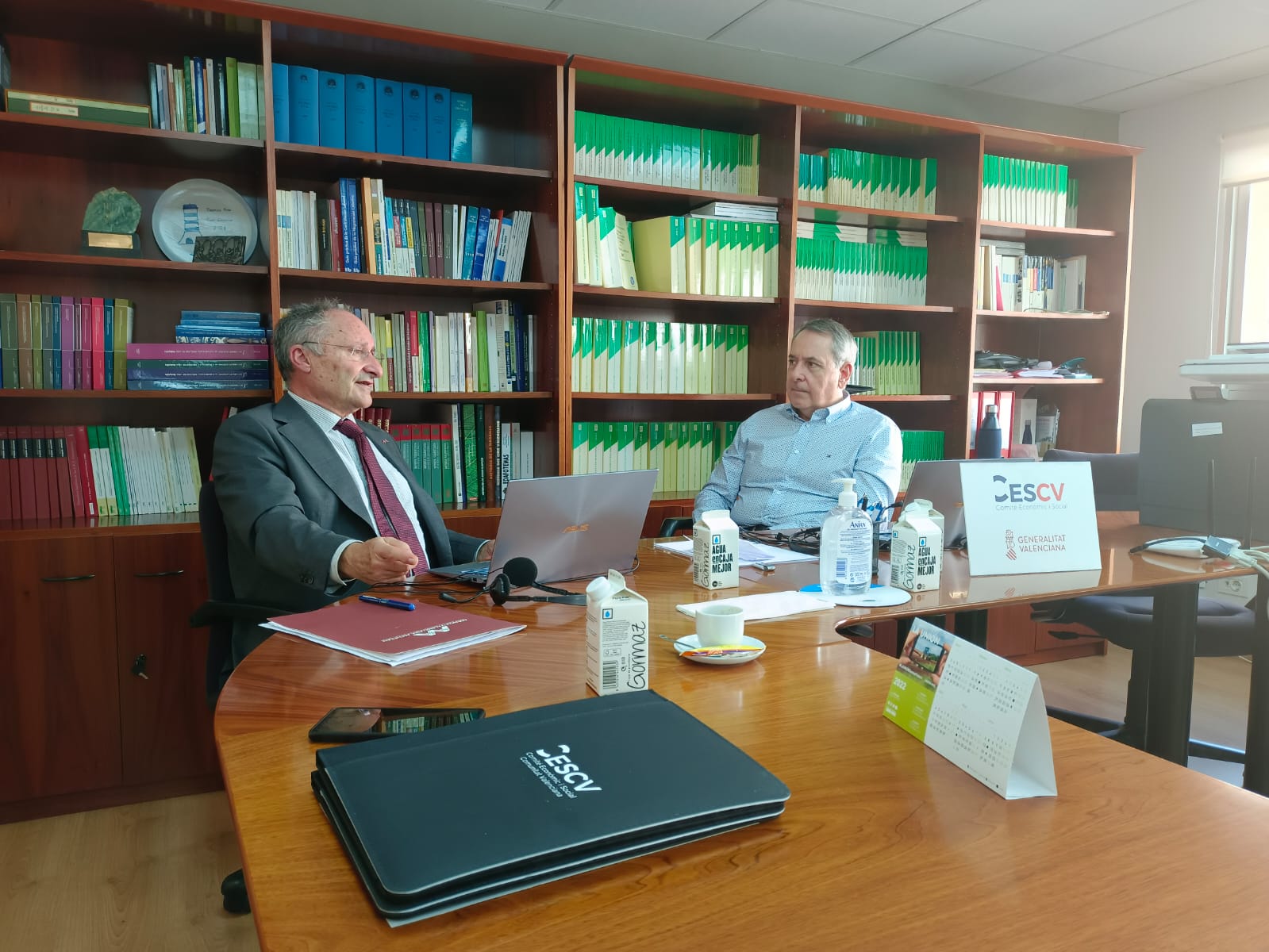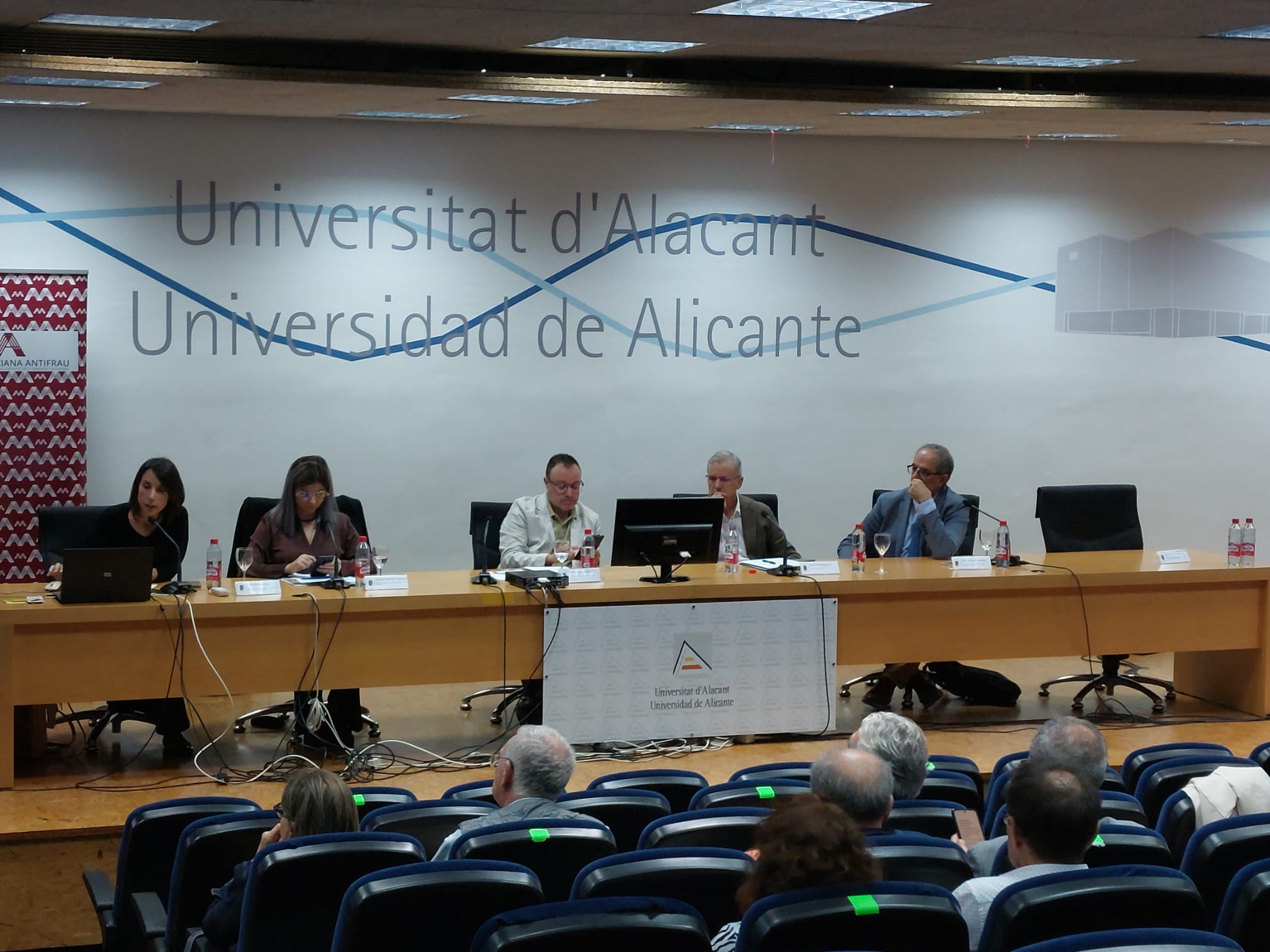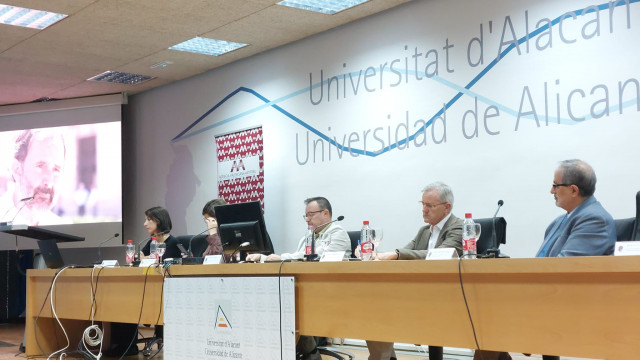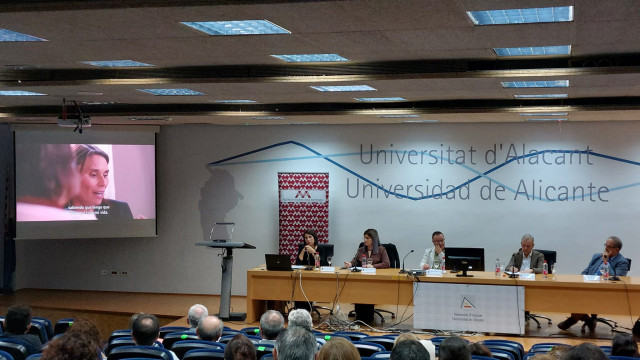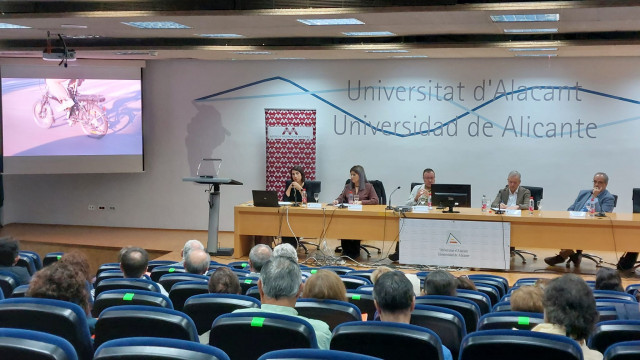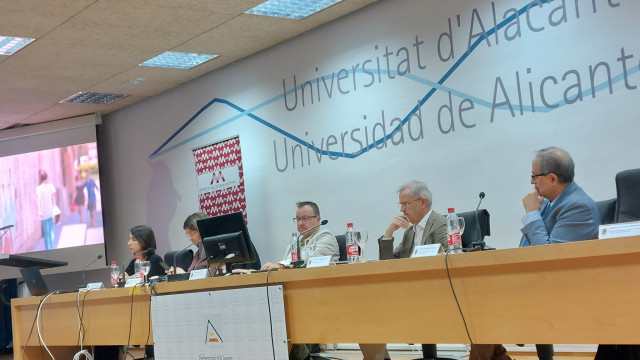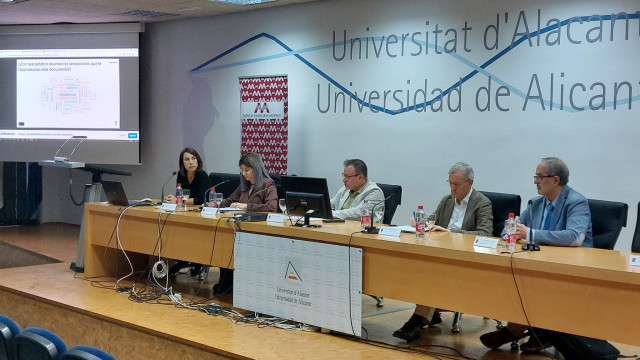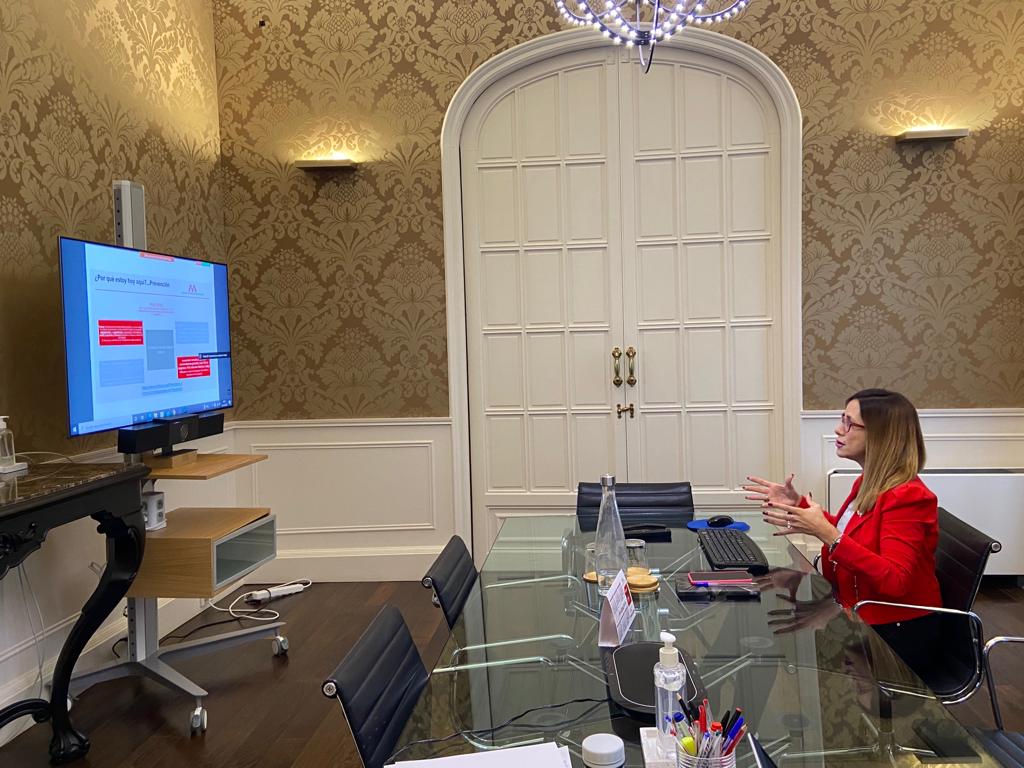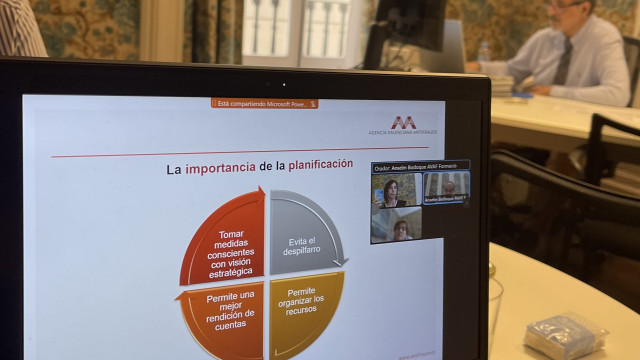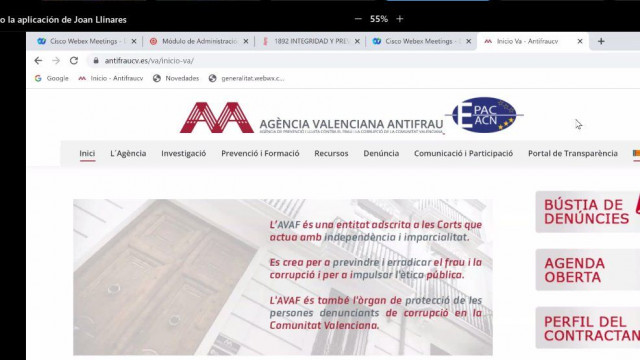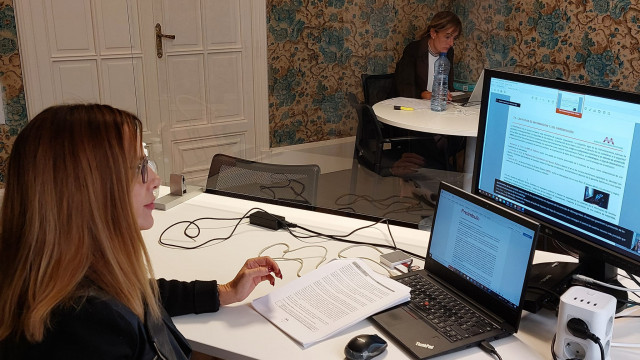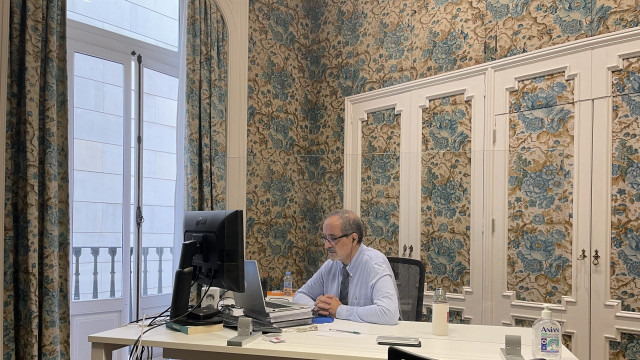#TrainingAVAF
The interuniversity course “Prevention of risks of corruption in public management” at the University of Alicante ends.
Alicante, November 8, 2022. The University of Alicante hosted the last of the sessions of the first Interuniversity Course on the prevention of corruption in public management that the Valencian Anti-Fraud Agency has given to elected management personnel, technical staff of administration personnel and services (PAS) and the members of the ethics committees of the five public universities of the Valencian Community.
The course began on June 7, 2022 at the Universitat de València, and continued in July with a conference at the Universitat Politècnica de València. In September the activity took place at the Universitas Miguel Hernández in Elche, while in October the session took place at the Universitat Jaume I in Castelló.
The last of the sessions was held at the University of Alicante. Public integrity and the detection of the most common risks was addressed in a dynamic workshop where the almost 300 participants (in person and online) played a prominent role in the session, by continuously formulating reflections and questions and viewing various documentaries.
“Corruption: harmful organism” produced by Pandora Box, through micro patronage, was the first of the documentaries seen by the attendees. The tape made it possible to see first-hand testimonies of whistleblowers of fraud and corruption and to publicize the work of the AVAF in protecting whistleblowers and investigating complaints.
Courage, hope, admiration, honesty have been the words with which some of the participants in the session have described the attitude of the whistleblowers. Although, they have also highlighted the anger and indignation produced by verifying the situations experienced and exposed by the whistleblowers who appear in the documentary.
Where is it reported? What protection do whistleblowers receive? Can you have advice? Is there any kind of training on these issues for people who make decisions in institutions? Is anonymity guaranteed in complaints or alerts? These have been some of the questions formulated by the participants and that were answered by the AVAF in the conference in Alicante.
The planning of public management. Good governance tool, the documentary produced by the University of Valencia and the AVAF, was screened to highlight the importance of strategic planning in all public institutions.
The screening of this documentary revealed, in accordance with the opinions of the participants, the need to systematically deepen and develop in all administrations and administrative levels the culture of strategic planning and the dissemination and exhaustive knowledge of organizations among all the staff who work in it. also highlighting that the absence of planning leads to improvisation and increases the risk of incorrect or fraudulent practices.
Anselm Bodoque, Pilar Moreno and Marita Oliver, from the Training Service of the Valencian Anti-Fraud Agency, together with Cristina Fernández, a technician from the Observatori Ciutadà Contra la Corrupció and a researcher from the University of Salamanca, have formed the team of teachers for the conference in Alicante.
The interuniversity course has been taught by staff from the Valencian Anti-Fraud Agency and the Services Inspection of the Generalitat Valenciana over five days. Each of the Valencian public universities has hosted one of the sessions throughout the months of the learning experience.
The Valencian Anti-Fraud Agency thanks the external speakers of the AVAF, Delia Cuenta and José Luis Gaona, from the General Inspection of Services of the Generalitat Valenciana, and Cristina Fernández, researcher at the University of Salamanca for their predisposition and collaboration.
The celebration of this interuniversity course has been possible thanks to the great work of the PAS training and streaming services of the five Valencian public universities, the University of Valencia, the Polytechnic University of Valencia, the Jaume I University of Castelló, the Universitat Miguel Hernández d’Elx and the Universitat d’Alacant. The AVAF thanks the people responsible for these services, their work, willingness to collaborate and the infrastructure provided so that the sessions were carried out perfectly.


